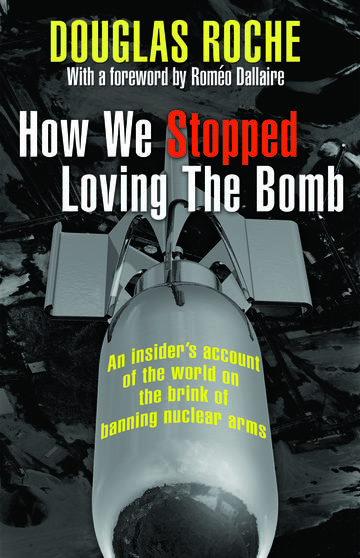Nobody loves nuclear weapons--except their powerfully placed defenders in government, their supporters in the military, and terrorists. When President Barack Obama brought his vision of a nuclear weapons-free world to the White House, he re-energized the peace movement. Today the historical momentum to rid the world of nuclear weapons is once again gathering speed.
Former Canadian Ambassador for Disarmament and Senator Douglas Roche, a leading authority on nuclear disarmament, writes about the people, the issues, and the ideas behind the new peace movement. Using a UN conference that took place in New York City in 2010 as his jumping off point, Douglas Roche takes us behind-the-scenes to describe the many diplomats, members of NGOs, and individuals who have come together to push for peace.
DOUGLAS ROCHE was Canada's Ambassador for Disarmament to the UN from 1984 to 1989, serving as Chairman in 1988. He is an author, parliamentarian, and diplomat, who has specialized throughout his forty-year public career in peace and human security issues. He lectures widely on peace and nuclear disarmament themes. Roche is the author of nineteen books. His previous book, The Human Right to Peace, was the Canadian Book Review Annual Editor's Choice scholarly selection for July-August, 2005. He is an Officer of the Order of Canada.
"...this insider's account focuses on the people, issues and ideas behind the new peace movement to describe the efforts made by those working to ban nuclear weapons forever. With a foreword by Romeo Dallaire."
"...few can match the knowledge, experience and commitment that Roche brings to his analytical opinion."
"Former Canadian Senator and statesman Douglas Roche has devoted his professional life to public service and his latest book, How We Stopped Loving the Bomb, follows in that noble tradition. The book addresses three grave risks posed by nuclear weapons -- those from existing stockpiles, those from the proliferation of such weapons to additional States, and those from nuclear terrorism. He argues that we should respond to these challenges not simply out of fear, but out of a conviction that it is possible to construct a safer world for all without such weapons. As he says in his book, "what people want most is a reason to hope for a better future." This book makes an eloquent and persuasive case that nuclear disarmament offers the strongest foundation for constructing such a future. He explains how a nuclear-weapon-free world is not just desirable but achievable. And he rekindles our belief in the unlimited potential of what people can achieve when they work together in the interest of humanity."



